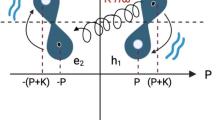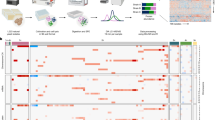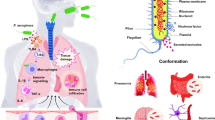Abstract
SEVERAL examples of bacterial transformation have been reported since the discovery of the phenomenon by Griffith1. Among the properties found to be transformed, besides synthesis of the capsular polysaccharide antigens, are drug-resistance and enzymic capacities2. In work concerned with the host-specificity of a phage (S-a) attacking an amylase-forming bacterium, Bacillus subtilis var. amyloliquefacus 3, we have tried to transform a non-susceptible organism into a susceptible one. This communication describes the successful results of such an experiment.
This is a preview of subscription content, access via your institution
Access options
Subscribe to this journal
Receive 51 print issues and online access
$199.00 per year
only $3.90 per issue
Buy this article
- Purchase on Springer Link
- Instant access to full article PDF
Prices may be subject to local taxes which are calculated during checkout
Similar content being viewed by others
References
Griffith, F., J. Hyg., 27, 143 (1928).
Ephrussi-Taylor, H., Adv. Virus Res., 3, 275 (1955).
Fukuda, S., J. Gen. App. Microbiol., 7, 1 (1961).
Webb, J. M., and Levy, H. B., J. Biol. Chem., 213, 107 (1955).
Author information
Authors and Affiliations
Rights and permissions
About this article
Cite this article
FUKUDA, S., TSUZUKI, K. Interspecific Induction of Transformation of Bacteria with Respect to Phage-susceptibility. Nature 190, 937–938 (1961). https://doi.org/10.1038/190937a0
Issue Date:
DOI: https://doi.org/10.1038/190937a0
Comments
By submitting a comment you agree to abide by our Terms and Community Guidelines. If you find something abusive or that does not comply with our terms or guidelines please flag it as inappropriate.



